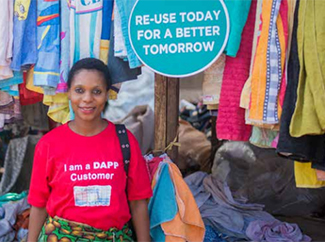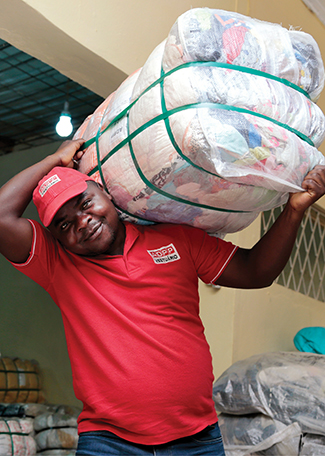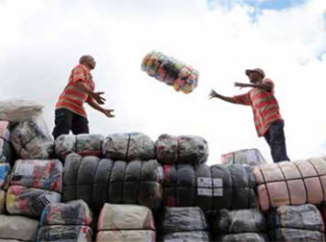consent_cookie
Duración: 1 year
Stores the user's cookie consent state
24-05-2024
The second-hand clothing sector is key to job creation and economic growth in Africa. It is the main conclusion of a study promoted by Humana People to People based on the impact that imported clothing, mainly from Europe, causes in five African countries: Angola, Guinea-Bissau, Malawi, Mozambique and Zambia.
“More than 1.28 million people are employed in this sector, the vast majority in informal employment. It also has a positive impact on increasing public income and reducing poverty rates, since it allows many households to obtain income,” the document states.
“Job creation in the second-hand clothing sector in Africa: data from Angola, Guinea-Bissau, Malawi, Mozambique and Zambia” is the report promoted by Humana People to People, to which Humana Fundación Pueblo para Pueblo belongs. The Spanish social economy entity Humana develops its cooperation projects under the umbrella of Humana People to People, which integrates 29 organizations worldwide that share values and programs.
The report reveals that the second-hand clothing trade is a vital driver of employment, especially in countries where non-mechanized agriculture dominates the labor market. Based on case studies from Angola, Guinea-Bissau, Malawi, Mozambique and Zambia, it offers the following data: more than 1.28 million people are employed in the second-hand clothing sector in these countries; Each ton of imported clothing supports an average of 6.5 jobs. This represents up to 25% of total service sector employment in these countries.
“The findings of this report highlight that the second-hand clothing sector is a major driver of employment in Africa,” said Joseph Feyertag, independent development economist and author of the report, adding: “In countries suffering from high levels of extreme poverty, these jobs represent an opportunity to diversify incomes beyond subsistence farming and provide much-needed access to affordable clothing. It is time we recognize and amplify the value that the second-hand clothing sector brings. hand".
Main conclusions of the report
“The report highlights the urgent need for policymakers to re-evaluate their approach to the second-hand clothing trade, recognizing its significant socio-economic contributions and its potential for further growth. With strategic investments and supportive policies, the second-hand clothing sector can be leveraged to create more green jobs and improve the lives of millions more people in Africa,” the study states.
Patrick Diamond, Professor of Public Policy at Queen Mary University of London and editor of the study, says: “The second-hand clothing sector is a major economic force in Africa, contrary to the common misconception that it competes with local textile industries. In fact, it complements them, enriching local economies and providing essential clothing at affordable prices. “Strategic support from policymakers can unlock even greater potential within this sector.”
Hilda Kavenuke, a second-hand clothing retailer in Zambia, acknowledges: “As a retailer in the second-hand clothing market, I have seen first-hand how this business not only supports my family, but also the community around us. Each shipment of clothing we receive becomes multiple opportunities, not only in sales, but in jobs for many other people throughout the supply chain, reaching 6.5 jobs per ton. Boosting this sector can transform. communities by creating more jobs and supporting more families.
Humana, 1,584 development actions in which 17.9 million people participate
Humana People to People is a federation of 29 independent associations dedicated to humanitarian and sustainable development activities. The members of the Federation work in 46 countries on five continents. In Angola, Guinea-Bissau, Malawi, Mozambique and Zambia, Humana People to People members run a combination of second-hand clothing sorting centres, wholesale outlets and retail stores that operate as social enterprises. Profits from the sale of clothing and footwear are invested in social development projects in each country.
Around the world, Humana People to People carries out 1,584 development projects, focusing on sustainable agriculture and the environment, community development, health and education, reaching more than 17.9 million people in Africa , Asia and Central and South America.


